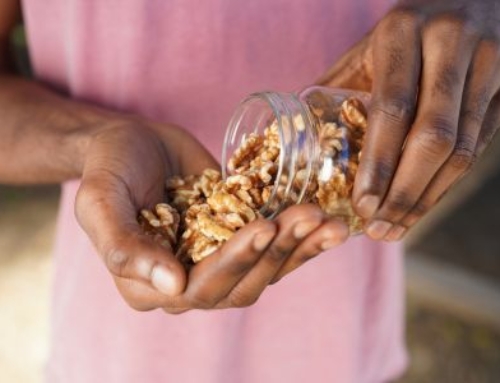6 Simple Healthy New Year Resolutions with dietitian Sian Porter
Many of us will make a resolution to be healthier in some way in the new year, but with most of us short on time, it can be tricky to keep them up. To keep us on track, dietitian Sian Porter suggests six simple new year resolutions for a happier and healthier 2020.

- Move More
Doing more activity couldn’t be easier when it’s part of your daily routine. Every minute counts whether it’s cleaning, walking to school or carrying bags back from the shops. Some simple steps to keep you active in your everyday life could include taking the stairs instead of the lift, parking in the furthest space in the car park, walking short journeys rather than taking the car, walking part of the way to school or work by parking further away, walking to a colleagues desk rather emailing, setting a reminder to get up from your desk every hour to move and stretch – the list is endless and all helps towards upping your step count!
- Snack Smart
Snacking can easily be part of a healthy balanced diet if it fits in with your daily food and drink intake. A handful of walnuts (approx. 30g) is an ideal healthy, portable and non-messy snack. They are also the only nut to contain a significant amount of the plant-based omega-3, alpha-linolenic acid (ALA), 2.7g/ 30g and offer 4.4g of protein and 1.4g of fibre[1] too. Have a handy packet of walnuts in your bag or a pot of walnuts readily available in your fridge so they are easily accessible throughout the day.
- Make Time for Friends
Having good friends and a strong social support network can relieve stress, help look after your mental health and provide other positive health benefits, such as reducing the risk of certain disease and cognitive decline in aging. Friendships need to be nurtured. Make meet ups automatic with a weekly or monthly standing ‘appointment’ and block out that time in your diary. Never leave a get-together without setting the next date. If you’re short for time and can’t meet up, then calling your friends for just 10 minutes can give you the boost you need. This can be when you’re walking to the shops or on your way home from work.
- Out with Old
Why not take advantage of time at home during the winter months to de-clutter, such as checking use by dates on items in your fridge and cupboards and note what belongs where. For example, walnuts are best kept in the fridge. This gives them a longer shelf-life and keeps them tasting fresher for longer.
- Have a Heart

Falling mortality rates from heart disease were the biggest cause of increases in life expectancy between 2001 and 2016 according to the latest available figures. This is great news, but it is still the number one cause of mortality for males and second for females in the UK[i]. Your heart has to last a lifetime so give it care in 2020 by eating foods that are richer in plant-based omega3 alpha-linolenic acid (ALA) and unsaturated fats. Walnuts are a heart healthy choice, so make them a regular part of your healthy balanced diet and lifestyle by simply adding them to your favourite meals or snacking on them throughout the day.
- Use your Gut Feel
Isn’t it good to be told to eat more of something, especially this time of year? This is what most of us need to do with fibre[ii]. Fibre keeps your gut healthy, fills you up and can provide fewer calories for a larger amount of food. Swap meat for beans and lentils in curries, stews and soups, choose wholegrain varieties like brown rice and wholegrain pasta (but watch your portion size), eat plenty of vegetables and fruit including the skin and pips, choose nuts, such as walnuts and seeds as a snack or simply add them to salads, cereals, yoghurt and soups.
[1] Food Standards Agency (2002), McCance & Widdowson’s The Composition of Foods, Seventh summary edition. Cambridge: Royal Society of Chemistry
[i] https://www.ons.gov.uk/peoplepopulationandcommunity/birthsdeathsandmarriages/deaths/adhocs/009367deathsfromdiseasesofthecardiovascularsystemandischaemicheartdisease2010to2017
[ii] https://www.gov.uk/government/statistics/ndns-results-from-years-7-and-8-combined





